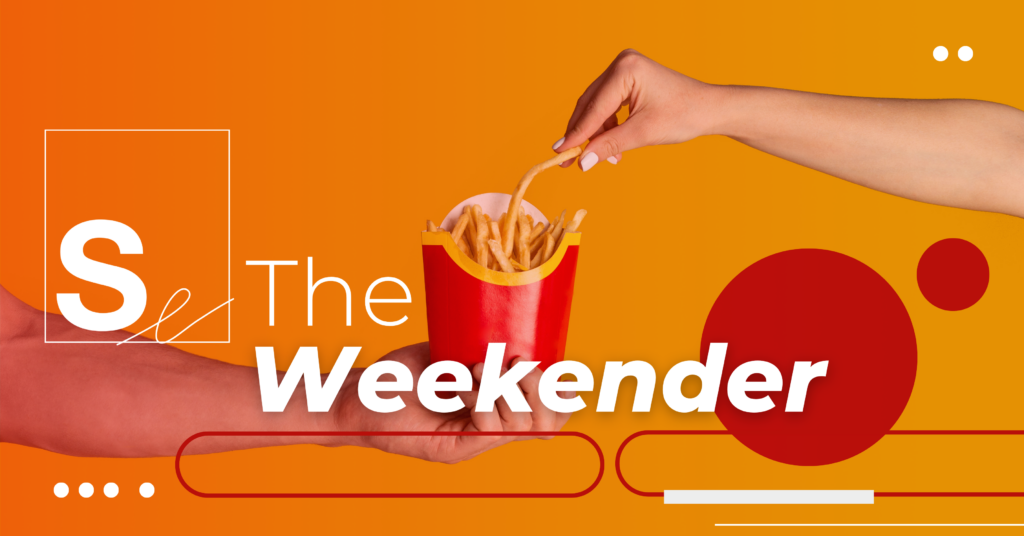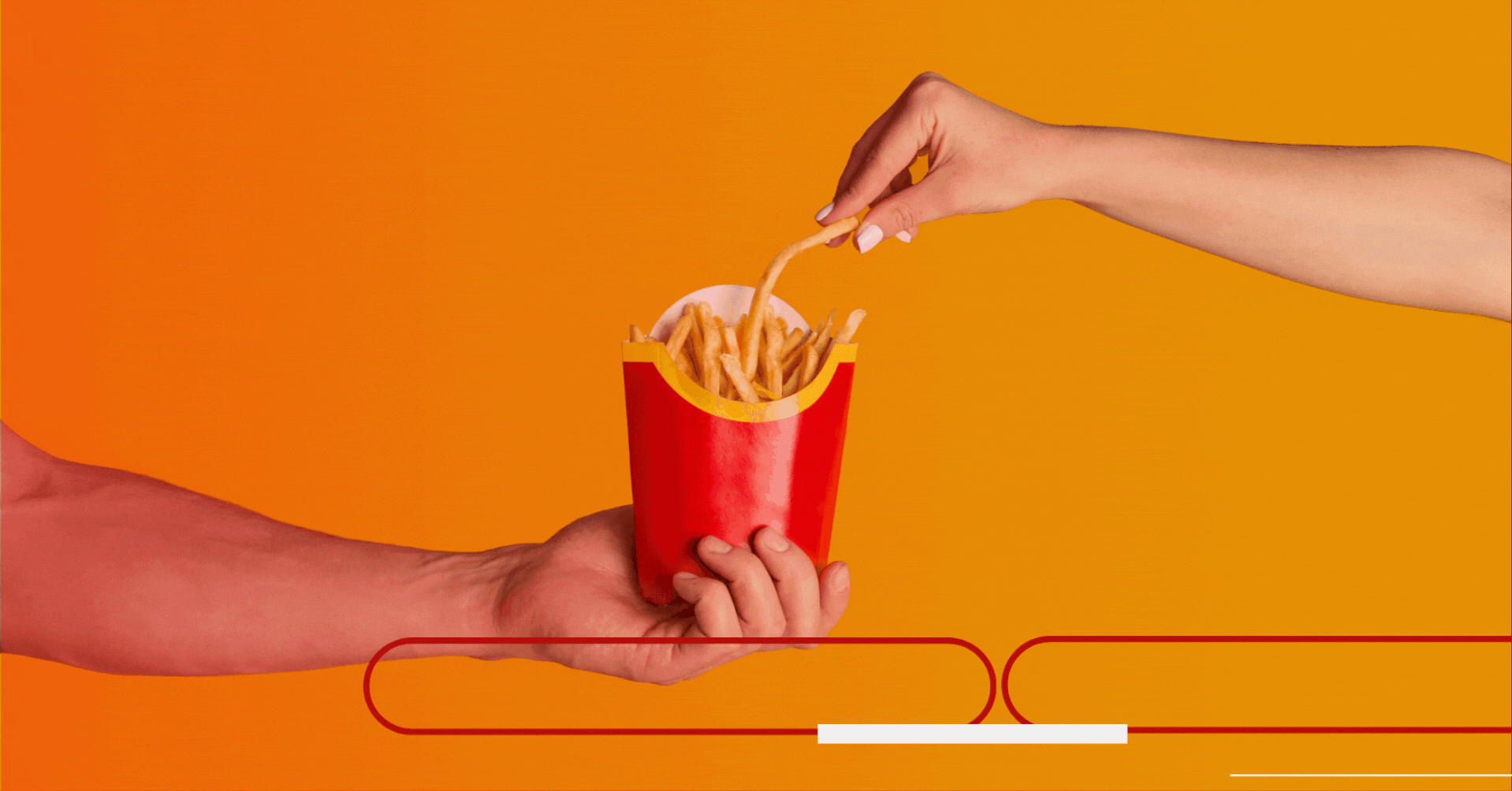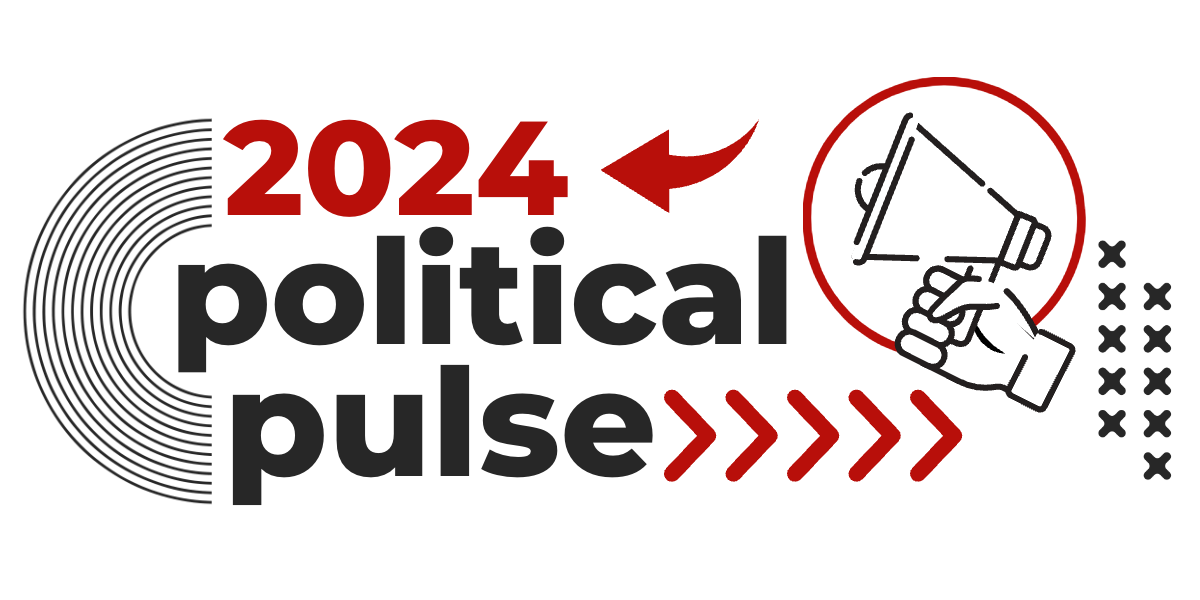DATA POINTS
- 118: The number of days the Hollywood SAG-AFTRA strike lasted
- 12,000+: The record-setting number of migrants that crossed the border on Tuesday
- 10: The number of CosMc’s, McDonald’s new restaurant format, set to open in the first half of 2024
- $60B: The price of ExxonMobil’s planned acquisition of Pioneer Natural Resources
- $343.20: The amount Sen. Fetterman paid for a Cameo of Rep. Santos to troll Sen. Menendez
- $132B: The current amount of student loan debt canceled by the Biden Administration
 Four Candidates in the Fourth Debate
Four Candidates in the Fourth Debate
Four Republican candidates took the stage Wednesday night in Tuscaloosa, Alabama for the fourth GOP primary debate. Florida Governor Ron DeSantis, former U.N. Ambassador Nikki Haley, entrepreneur Vivek Ramaswamy, and former New Jersey Governor Chris Christie vied for attention while Trump once again stayed (physically) out of the spotlight.
Some pundits have given the debate win to Governor DeSantis, who was pointed, aggressive, and mostly stayed outside the bickering of the other three candidates. While the candidate shot numerous darts at Haley, trying to depict her as a RINO, he largely avoided criticizing Trump. Haley, who is increasingly considered by many to be the strongest contender for the second-place seat, seemed unphased by the attacks: “I love all the attention, fellas, thank you for that.” She also largely avoided criticizing Trump by name.
Christie, who narrowly made the debate stage, also had strong moments and acted – as former Vice President Pence once said – as the “adult in the room.” Early in the debate, he rushed to defend Haley from Ramaswamy’s attacks, balancing his presentation between his usual antagonistic demeanor and that of a more nuanced, thoughtful leader. “This is a smart, accomplished woman,” he told Ramaswamy. “You should stop insulting her.”
As expected, Ramaswamy was calculated and sharp-tongued, but likely lacked the suavity to convince voters that he’s White House material. His zingers didn’t fail, though, at one point calling Haley a fascist and telling Christie to “eat a nice meal.” The big question is, with the Iowa Caucuses just five weeks away, is anyone doing enough to genuinely be competitive with Trump, who leads by roughly 30 points in each of the early contests. The debates haven’t had a catch-fire moment for anyone, but if nothing else, they make for good television.
Read more at The New York Times
Under 30 Indecision
During the 2020 election, polls saw a record turnout of eligible voters under 30 (53%), which significantly benefited the Biden campaign. President Biden won this population by 24 points. While Biden still maintains the lead over Trump in a Harvard youth poll, as we look to 2024, the left should think twice before betting the farm on this developing demographic.
The poll shows fewer voters under 30 plan to vote in next year’s general election. While most may assume this drop in young voters would hurt the Democratic candidate, the poll shows a more considerable decline in the planned participation of young Republican voters. Perhaps more startling for both parties is that the largest bloc of voters under the age of 30 identify as independents (38%) compared to Democrats (35%) and Republicans (26%).
While young voters aren’t particularly keen on re-electing former President Trump, President Biden’s overall job approval sits at just 35%. The demographic shows distrust for both leaders on issues including the Israel-Hamas war, Russia-Ukraine war, healthcare, crime, public safety, and climate change. With primary season around the corner, young voters have limited time to make up their minds and help determine the future of Pennsylvania Avenue.
Read More at The Washington Post
Don’t Use This Resource for Your Research Paper

What drove the interest in learning more about the emerging AI software? Perhaps curiosity, concern, or finding detailed information about the unknown. In the last two years, AI has pivoted from a futuristic idea to an implemented practice for many companies and individuals. ChatGPT leads traffic among all AI software at 14.6 billion total visits since its launch in November 2022.
While there’s no way to forecast the future of ChatGPT, it’s certain AI is here to stay. In 2024, Forbes suggests AI tools will go beyond words and pictures, moving into voice synthesizers and generative design. 2024 will likely see continued discussions in Congress surrounding AI ethics and the need for added safeguards and regulations.
College Play for Pay

Right now, this is just an idea, but here is what we surmise from Baker’s proposition. Revenue from media deals have generated billions of dollars for colleges and universities, and Baker is looking for a way college athletes can more directly participate in a share of the wealth.
The increasingly prevalent topics of name, image, and likeness (NIL), Title IX, roster size, and overall fund distribution has led the NCAA to become a Wild West to govern; this is no exception. The idea of paying athletes from trust funds within the universities would allow big-money schools to have more freedom in making decisions about the rules within their own institutions.
There are other potential problems, too. While the theory behind payment is not to make student athletes into employees, realistic application surely has potential to lead there. Institutions that choose to join the Rich Schools subdivision would be challenged with rewriting much of the system they know. It’s not clear how these schools’ athletes would be compensated and have their own rules, yet still operate within equitable guidelines set by the NCAA.
President Baker’s proposition may hold possibility, but is accompanied by significant questions, not the least of which is ensuring there is fairness for universities and players in what has been an amateur level of competition. For now, Baker’s letter remains an idea as they gather feedback and determine next steps.
Are You Too Busy for a Vaccine?

Today, the virus remains a dinner table conversation, and while vaccinations were once commonplace, fewer Americans are extending their arm to get a Covid vaccine. As of November 18, only 15.7% of U.S. adults had received the latest Covid shots. People cite a lack of worry as the primary reason for foregoing the vaccine; others say they’ve been too busy. Only 23% of Republican poll respondents said they had or would get the latest shot. Independents and Democrats polled at 40% and 74%, respectively.
The low rate of current vaccinations has generated concern from the CDC. On their website, the Center wrote, “COVID-19 vaccine uptake is lower than we’d like to see, and most people will be without the added protection that can reduce the severity of COVID-19.” They emphasized the virus is still a major cause of hospitalization and death and underscored the ways the vaccine reduces illness severity.
Akin to the chicken pox, polio, and flu vaccines, Covid shots are likely here for the long-haul. But will people engage? Only time will tell.
Uncle Sam Ups Interest Rates

This might be most impactful for independent contractors and self-employed workers who are required to make estimated tax payments at least once per quarter. W-2 employees who have withholdings from paychecks will likely be impacted the least.
While the steep fee is a result of underpayment, some are concerned with the adjustment given Americans’ lack of general knowledge about the tax system. A 2023 Morning Consult poll reported that 30% of U.S. adults don’t know whether they would owe the IRS or receive a refund. Research from the American Institute of Certified Public Accountants found that more than half of taxpayers intentionally pay an inaccurate amount of taxes throughout the year. Of these, 71% choose to overpay and receive a refund, and 29% underpay and pay the difference later.
Regardless of your situation, it’s never a bad idea to review your withholdings and create a plan to ensure you’re on track to pay Uncle Sam’s his due.
INTERNATIONAL SPOTLIGHT
Learning Loss: A Global Phenomenon
When you think of worldwide problems at a time of multiple wars, education likely doesn’t top the list. A new study from The Organization for Economic Cooperation and Development (OECD), however, shows a global issue of educational setbacks and substantial difficulties in reading and math worldwide. It’s impossible to tie macro trends to a singular root, but learning loss due to the pandemic is certainly a considerable contributor.
In the U.S., students’ math scores fell by 13 points between 2018 and 2022. Other countries in the OECD averaged a 15-point decline in math. On the scale which performance was measured, 20 points is equivalent to a year of learning. Several countries, including Canada, Estonia, and Japan outperformed the average. U.S. Education Secretary Miguel Cardona noted there is work to be done. “We need a math revolution,” he said. “Math is critical to our global competitiveness and leadership.”
While tests only show a snapshot of student success, standardized exams are often watched as a country’s measure of success and economic competitiveness.
Read More at The Wall Street Journal
See you next week!
Be sure to follow us on Facebook, Twitter, and LinkedIn for more news and industry updates. To receive a copy of The Weekender in your inbox, sign up here.




 Four Candidates in the Fourth Debate
Four Candidates in the Fourth Debate


